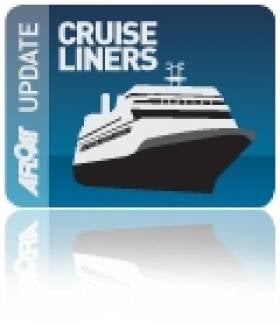Displaying items by tag: Holidays
Cruise-Talk at the Holiday World Show
The following ferry and cruise operators are exhibiting at the show: Azamara Cruises, Celebrity Cruises, Celtic Link Ferries, Cruise & Maritime Voyages, Cruise Holidays, Travel.ie, Hurtigruten, John Galligan Travel, MSC Cruises, Princess Cruise Lines, Pullmantur Cruises, Regent Seven Seas Cruises, Royal Caribbean Cruise Line, Saga, Silversea Cruises, Thomas Cook and Voyages To Antiquity.
Also exhibiting is Emerald Star for those interested in taking a cabin-cruiser holiday on the Shannon.
For opening times of Holiday World Show (incorporating the Caravan & Motor Home Show) see below
Friday 28 January 1.00 pm - 8.00 pm
Saturday 29 January 11.00 am - 5.30 pm
Sunday 30 January 11.00 am - 5.30 pm
For a full listing of exhibitors, ticket prices and further information about the show logon to www.holidayworldshow.com
With the school holidays fast approaching, NI Coastguards are encouraging children to stay safe whilst at the beach and along the coast.
Last month, Northern Ireland Coastguards dealt with a number of incidents that involved young people being overwhelmed by the power of the sea or being cut off by the tide. Some young people have attempted to swim to islands but have underestimated the strength of tides and the distance that they need to swim.
The Coastguard would like to encourage young people to stay within their depth and to check tide times before they arrive at the beach.Coastguard Sector Manager Gordon Munro says,"We'd like everyone who visits our coast to have a great time.
So before you go check out the weather and the tide times (these can often be found at the entrance to the beach).
That way you can ensure that the tide doesn't take you by surprise and that you don’t get cut off."Inflatable boats and toys can be great fun, but we’d rather that you used them in swimming pools than at the beach. If you do use one at the beach, make sure that it is tethered to an adult and never use it if there is an offshore wind. Inflatables can so easily be blown off shore, then overturn.Make sure that children are supervised properly by adults.
We deal with numerous cases of lost children every year and it can be very distressing for children and adults alike.Try to go to a lifeguarded beach if you can and stay within the flagged area.If you notice that someone is in difficulty, either alert the lifeguard if one is available or call the Coastguard on 999.Finally, have a great time and return home safely."If you want to prepare for your day out on the coast, you might like to visit Directgov for Kids where there are games and activities for children. Visit http://kids.direct.gov.uk/






























































